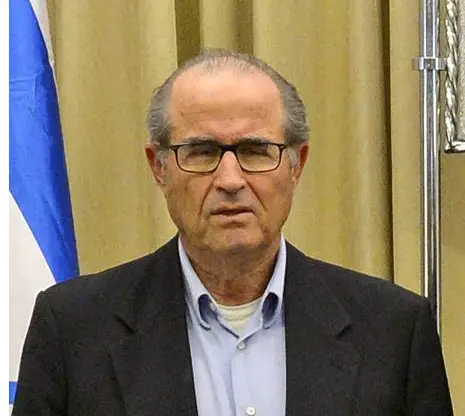Shabtai Shavit
(1939 - 2023)
 |
Shabtai Shavit was the seventh Director of the Mossad, and served from 1989-1996. He was born in Nesher, a suburb of Haifa in pre-State Israel on on July 17, 1939. His father was a school principal and his mother taught nursery school. He learned Arabic from Arabs from a nearby village who picked olives in his family’s yard.
Shavit is a graduate of Hebrew Reali School. In the army, he served in the IDF’s Sayeret Matkal (special forces unit) immediately following its establishment. He earned a B.A. in Middle East studies from Hebrew University and an M.A. in public administration from Harvard.
Shavit joined the Mossad in 1964. He served in operational functions and senior command positions in Israel and abroad. He was military governor of Israel’s Southern regional command from 1978 to 1979. From 1980 to 1985, he led the Caesarea division, a unit reportedly responsible for rescuing Israeli hostages and retaliating against their kidnappers.
He also served as second-in-command to Mossad Director Nahum Admoni in 1986–1989. He was appointed Director of the Mossad in 1989 and served in that position for seven years. He was the second director, following Admoni, to have grown within the Mossad, and was the last director whose name was classified during his term.
Shabtai Shavit adapted the structure and deployment of the Mossad, as well as its combat doctrine, to fit the significant historic events and changes that occurred in the world in the course of his term. Reference is to events and changes such as the breakup of the Soviet Union and the East European bloc; the end of the Cold War; China opening up to the world; the influence of the eastern Asian countries on the global economy increased; and globalization began gaining momentum. In the Middle East, Iran joined the race for nuclear development, as did Saddam Hussein’s Iraq. Iraq invaded Kuwait, which resulted in the forming of an international coalition of countries, led by the U.S., and the break out of the first Gulf War.
During Shavit’s term, the peace agreement between Israel and Jordan was signed in 1994. The Mossad was involved in the negotiations to reach the agreement, which was eventually achieved after many years of covert ties between Israel and Jordan. The day after the treaty was signed, King Hussein called Shavit at his home. “The king wished to thank me personally for my role in achieving peace,” Mr. Shavit wrote in his memoir.
Upon his taking up the position, the issue of the Mossad’s organizational culture, which focused on values and manpower dilemmas, was examined extensively. As a result, the Mossad’s credo was drafted, and its values and culture were defined. He was also the founding chairman of Reichman University’s International Counter Terrorism Institute in Herzliya, and worked with the New York City Fire Department to establish a terrorism preparedness task force.
After completing his 32 years of Mossad service, Shavit was appointed general manager of Maccabi Health Care Services and then turned to business. He also served for many years as an advisor to the Subcommittee for Secret Services of the Knesset’s Foreign Affairs and Defense Committee.
Shavit died on September 5, 2023.
His wife, Yael, had also been a covert agent. He is also survived by his three children.
Source: The Mossad.
Wikimedia.
Sam Roberts, “Shabtai Shavit, Former Top Israeli Spymaster, Dies at 84,” New York Times, (September 8, 2023).
Photo: Haim Zach / Government Press Office, CC BY-SA 3.0 via Wikimedia Commons.


